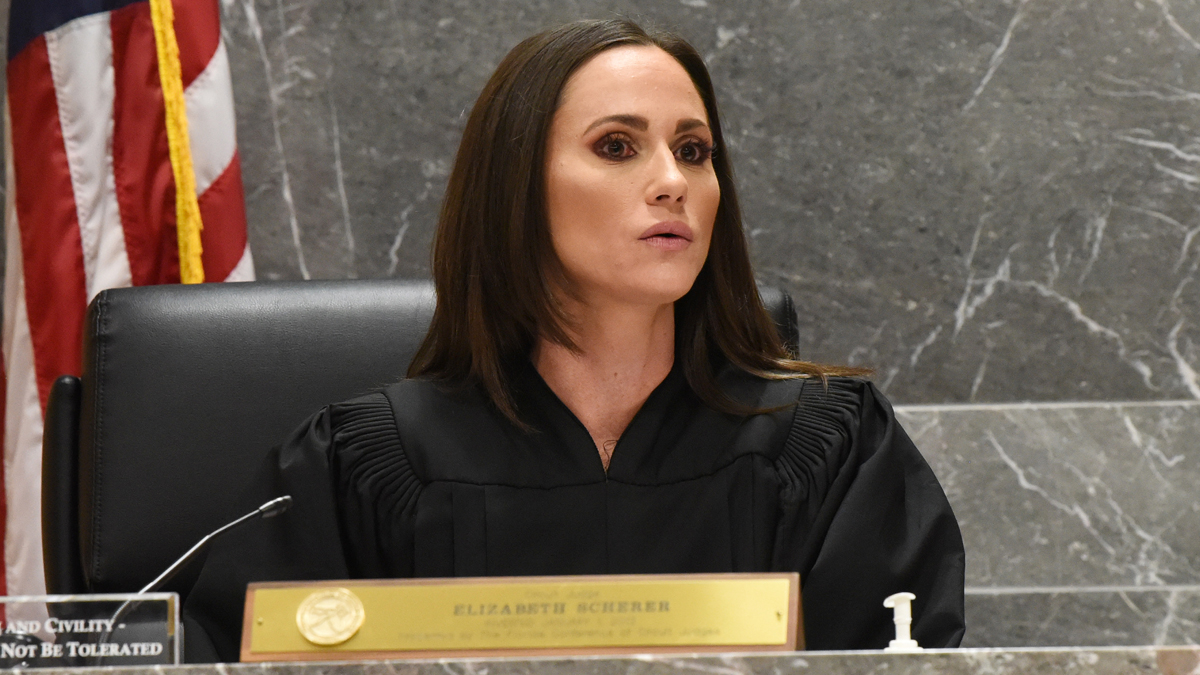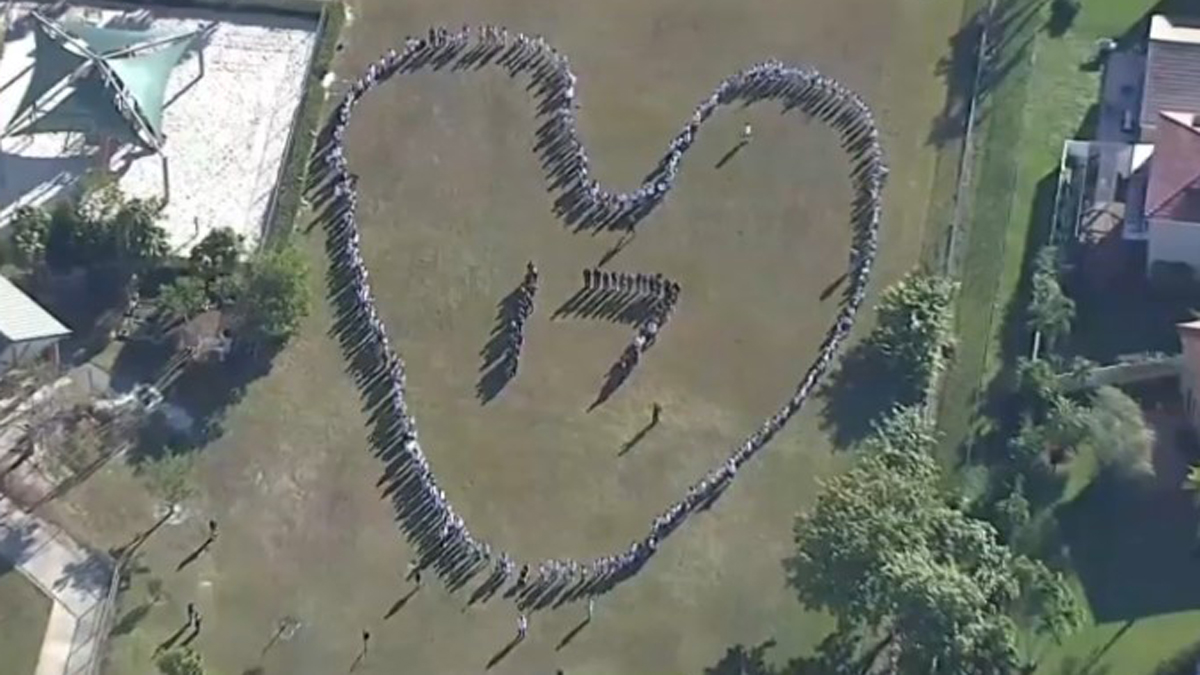Jury selection is set to begin Wednesday in the case of a fired Broward Sheriff's deputy charged with failing to confront the gunman who murdered 17 people at the Parkland high school he was assigned to protect five years ago.
Scot Peterson says he is “looking forward” to his trial because he wants “the truth to come out” so the public, and especially the victims' families, know he did everything he could during the mass shooting.
But prosecutors allege he could have prevented the last six of the 17 murders and four of the 17 injuries had he gone into the 1200 building and confronted the killer as soon as he arrived there.
If jury selection goes as quickly as possible, Broward Circuit Judge Martin Fein has said opening statements and testimony could begin as soon as Wednesday, June 7.
Get South Florida local news, weather forecasts and entertainment stories to your inbox. Sign up for NBC South Florida newsletters.
Here are some of the facts behind what will be the second and final criminal trial to emerge from the February 2018 massacre at Marjory Stoneman Douglas High School.
Who is Scot Peterson?
Peterson, 60, had been the school resource deputy on the campus for several years, including when the gunman attended the school before being sent to an alternative education campus for students with behavioral and disciplinary problems in February 2017
Peterson was named school resource deputy of the year in 2015, when he earned $105,000 a year, and was nominated in 2017 as Parkland deputy of the year.
What did Peterson do at Marjory Stoneman Douglas High School on Feb. 14, 2018?
Within two minutes of the first shots being fired inside the 1200 Building, Peterson arrived at the east door of the building and radios BSO of “possible shots fired – 1200 Building.”
At that moment the killer was walking up the western stairwell to the second floor, where he would fire more shots, but injure no one.
Behind him on the first floor, were 11 people dead or dying and 13 injured.
Why is Peterson on trial?
Prosecutors allege Peterson, who was armed with a handgun, should have entered the east doors and moved up to the second floor on the east side as the killer with the AR-15 style assault rifle was walking on the second floor from the west and confronted him.
Had Peterson done so and killed the shooter, no one else would have died.
Instead, Peterson retreated 75 feet to just outside an adjacent building and stood there for 48 minutes, the Florida Department of Law Enforcement concluded.
PARKLAND SCHOOL SHOOTING
What criminal charges is Scot Peterson facing?
Peterson is currently facing seven counts of child neglect and three counts of culpable negligence related the deaths and injuries on the third floor, as well as one count of perjury.
A jury of six will consider the following charges if Judge Martin Fein determines there is sufficient evidence to send the case to the jury.
- COUNT ONE: Child neglect with great bodily harm, involving Anthony Borges, then 15, who was shot, but survived.
- COUNT TWO: Child neglect for the death of Cara Loughran, 14.
- COUNT THREE: Child neglect for the death of Joaquin Oliver, 17.
- COUNT FOUR: Child neglect with great bodily harm involving Kyle Laman, then 15, who survived his gunshot wounds.
- COUNT FIVE: Child neglect for the death of Jamie Guttenberg, 14.
- COUNT SIX: Child neglect for the death of Peter Wang, 15.
- COUNT SEVEN: Child neglect without great bodily harm for the bullet fragment injury to Marian Kabachenko, then 14.
- COUNT EIGHT: Culpable negligence (showing a reckless indifference to or grossly careless disregard for others), by exposing to personal injury teacher Scott Beigel, 35, who was shot to death.
- COUNT NINE: Culpable negligence for exposing to personal injury teacher Stacey Lippel, 50, who was injured.
- COUNT TEN: Culpable negligence in the death of student Meadow Pollack who, at age 18, was no longer a child and, therefore, not subject to the child neglect charges used in connection with the deaths and injuries to the other students.
- COUNT 11; Perjury, for allegedly lying to a homicide investigator when Peterson said under oath he heard only two or three shots and saw no students running out of the 1200 Building as he stood in his position of cover.
The first seven counts of child neglect are felonies, while culpable negligence and perjury are misdemeanors.
The maximum terms for all the charges, if convicted on all counts and sentenced to consecutive sentences, would add up to 95 years and seven months, but that is not how judges actually sentence defendants in Florida.
The ultimate sentence would be up to Judge Fein.
What Is Peterson’s Defense?
Defense attorney Mark Eiglarsh sought to have the child neglect charges thrown out by arguing Peterson is not a “caregiver” as defined in Florida statutes: “a parent, adult household member or other person responsible for a child’s welfare.”
Neither side has produced a previous case where a school resource deputy or officer has been found to be an “other person responsible,” Judge Martin Fein noted, but in his order denying the motion to dismiss he said that should be a question for the jury.
He noted an appellate court had overturned the dismissal of child neglect charges against a Coral Gables teacher who stood by as an aide bound students to their desks or to a blackboard with adhesive tape. A trial court ruled "caregiver" did not apply to the teacher, but the appellate court disagreed, and the charges were restored. (She subsequently pled no contest, and the charges were dropped after she completed a pretrial intervention program.)
If the jury finds Peterson was not a caregiver, he cannot be convicted of the felony child neglect charges.
Peterson’s defense also relies on him saying he remained outside the 1200 Building because he was not sure the gunfire he heard was coming from inside. Eiglarsh has provided the state and the judge with a list of 22 defense witnesses who at some point said they perceived the shooter to be somewhere other than inside the building.
But the state has a radio transmission from Peterson – made 2 and a half minutes after he first reported hearing gunfire – stating “Yeah. We also heard him over by inside the 1200 Building.” At that point, Peterson had retreated to his place of cover 75 feet south of the east side doors he failed to enter. The killer stopped shooting people 45 seconds later, though he continued trying to fire through windows in the third-floor teachers’ lounge.
As part of his defense, Eiglarsh is asking the judge to allow the jury to visit the scene outside of the 1200 Building, but not go inside. The state has argued the jury view should include the third floor of the building, since that is where the deaths and injuries Peterson is charged with occurred. Judge Fein has said he would rule on those requests before the second round of jury selection begins, now set for Monday June 5.
What Will Jurors be Told?
The six-person jury will have to be unanimous.
When it comes to child neglect, they will be instructed they can find Peterson guilty if they agree he is a caregiver who “willfully or by culpable negligence failed or omitted to provide a victim with the care, supervision, and services necessary to maintain the victim’s physical or mental health” or “failed to make a reasonable effort to protect the victim from abuse, neglect or exploitation by another person…. Neglect of a child may be based on repeated conduct or on a single incident or omission that resulted in, or reasonably could have been expected to result in, serious physical or mental injury, or a substantial risk of death, to a child.”
To convict for culpable negligence (in the cases of the three victims who were 18 or older) the jury must find Peterson’s actions showed “more than a failure to use ordinary care of others … It must be gross and flagrant … committed with an utter disregard for the safety of others. Culpable negligence is consciously doing an act or following a course of conduct that the defendant must have known, or reasonably should have known, was likely to cause death or great bodily harm.”
Two things they will not be told: that Peterson will lose his pension if he is convicted of a felony; and that a Broward sheriff’s office memo written in 2020 told school resource officers they were not “caregivers.” (They are not listed as caregivers under a section of Florida law dealing with non-criminal child welfare issues, a section courts have ruled are not germane to the criminal child neglect statute under which Peterson is charged.)



